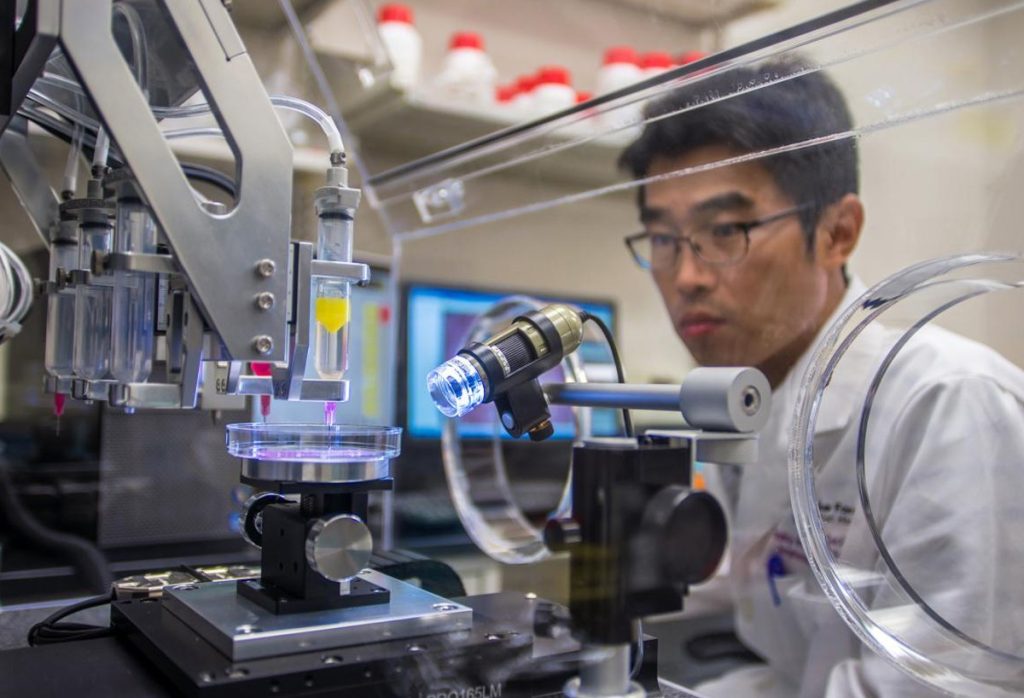nCa Commentary
South Korea is going to investment heavily in the bio-technology sector and it creates partnership opportunities for Central Asia.
First, let’s look at a news story by Yonhap, the news service of Korea:
SEOUL, Dec. 7 (Yonhap) — South Korea will funnel 400 billion won (US$304.5 million) into research and development next year to foster the digital transformation in the bio technology sector as part of the country’s long-term future growth plan, the science ministry said Wednesday.
The Ministry of Science and ICT released its latest digital-biotech strategy, saying the integration of digital technology into areas of the bio industry is the newest paradigm to increase efficiencies in technology transfers and manufacturing process development by using big data or artificial intelligence.
The government will take the lead in building five basic infrastructures by 2028, including a bio foundry with automatic research and manufacturing facilities and a state-led bio data station, to help companies experience digital transformation at the facility and manufacturing process levels.
Twelve key bio technologies, like gene editing, stem-cell therapy, organoid and brain science, will be financially supported by the government over the ensuing decade.
The ministry said it has set aside 400 billion won for next year for the project, aimed at helping South Korea become one of the world’s leading countries in the bio sector, and will increase the amount in the coming years.
In order to fast-track the project, the ministry will make efforts to tune up legal and administrative processes and seek ways to soften regulations in the related industries.
This story is available at the Yonhap website at this link: https://en.yna.co.kr/view/AEN20221207006900320?section=news
* * *
Korea, already a world leader in the bio-technologies, is going to stay at the forefront of knowledge and know-how in this sector.
This is an opportunity for Central Asia to link its research and development institutions with the corresponding establishments of Korea. Korea has always been generous in sharing its knowledge and experience with Central Asia and bio-technologies are an area where the region can benefit greatly in so many different ways.
According to the NTNU (Norwegian University of Science and Technology), Biotechnology is technology that utilizes biological systems, living organisms or parts of this to develop or create different products.
The NTNU website (https://www.ntnu.edu/) says, “With the development of genetic engineering in the 1970s, research in biotechnology (and other related areas such as medicine, biology etc.) developed rapidly because of the new possibility to make changes in the organisms’ genetic material (DNA).”
“Today, biotechnology covers many different disciplines (eg. genetics, biochemistry, molecular biology, etc.). New technologies and products are developed every year within the areas of eg. medicine (development of new medicines and therapies), agriculture (development of genetically modified plants, biofuels, biological treatment) or industrial biotechnology (production of chemicals, paper, textiles and food),” it says.
The website of BIO (Biotechnology Innovation Organization) of the USA says, “Currently, there are more than 250 biotechnology health care products and vaccines available to patients, many for previously untreatable diseases. More than 13.3 million farmers around the world use agricultural biotechnology to increase yields, prevent damage from insects and pests and reduce farming’s impact on the environment. And more than 50 biorefineries are being built across North America to test and refine technologies to produce biofuels and chemicals from renewable biomass, which can help reduce greenhouse gas emissions. Recent advances in biotechnology are helping us prepare for and meet society’s most pressing challenges.” — https://www.bio.org/what-biotechnology
Clearly, bio-technologies and the applications and solutions they create, are greatly needed by all the countries of Central Asia.
Cooperation with Korea in this field is very important for the region. /// nCa, 8 December 2022
